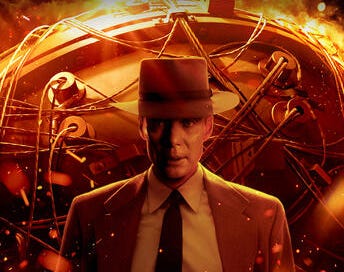A headline in The New York Times caught my attention last week: “Blaming Hamas for Gazans’ Suffering, Many Israelis Feel Little Sympathy.” I had just watched Oppenheimer, the 2023 surprise blockbuster about the creation of the atomic bomb, and felt a sense of deja vu.
The Israelis in the story lacked sympathy for Palestinian civilians. In fact, most dismissed the idea of “innocent civilians” altogether. They “blame(d) Hamas for starting the war and for embedding its fighters among the Gazan population, operating, according to the military, out of schools, hospitals and mosques, and in tunnels beneath Gazans’ homes."
I could hear echoes of Cillian Murphy’s Oppenhiemer trying to convince his fellow scientists to join the Manhattan Project, which was seeking to create an atomic weapon, an American bomb that would kill guilty and innocent alike. The Nazis will use it, he says, so we have to use it first — a rationale that was updated to allow for the incineration of Hiroshima and Nagasaki.
We like to pretend that historical films are about the times they portray. This is true to a limited extent, however. All art (and scholarship, I would argue) is about multiple time periods — but especially about the time in which it is made.
Keep reading with a 7-day free trial
Subscribe to Channel Surfing to keep reading this post and get 7 days of free access to the full post archives.




